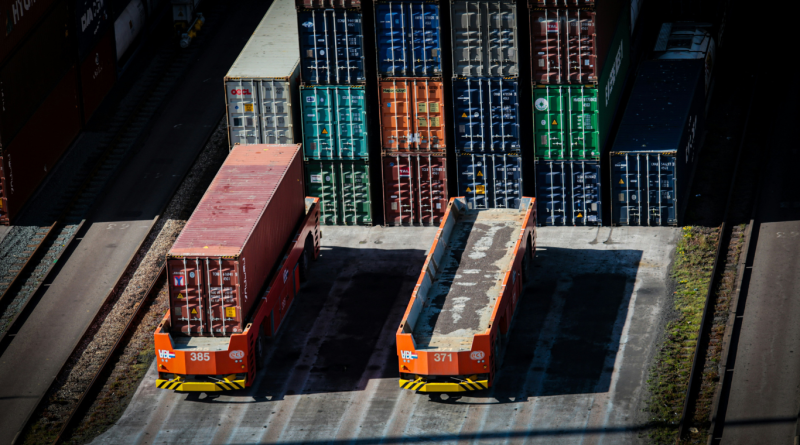7 Reasons Why Autonomous Trucks Are the Future of the Logistics Industry
Autonomous trucks are rapidly becoming a transformative force in the transportation and logistics industry. Companies worldwide are adopting autonomous trucking technologies to address pressing challenges, from driver shortages to rising fuel costs. In this article, we’ll explore the top 7 benefits of autonomous trucking and how it’s shaping the future of logistics.
1. Increased Efficiency and Reduced Operating Costs
Autonomous trucks are designed to streamline operations, significantly cutting down on operating costs. With self-driving technology, human error is minimized, allowing for optimal fuel usage and routing. This leads to fewer unnecessary stops, better load planning, and improved fuel efficiency. Companies like Waymo and TuSimple have demonstrated that their autonomous trucks can reduce fuel consumption by as much as 10%, thanks to consistent speeds and more accurate route planning.
By reducing the dependency on human drivers, autonomous trucks can operate longer and more efficiently. This has attracted major logistics firms, including Daimler Trucks and Embark, to invest heavily in autonomous fleets, paving the way for increased profitability and lower operational overheads.
2. Enhanced Road Safety
One of the most compelling benefits of autonomous trucking is the potential to improve road safety. Human drivers are prone to fatigue, distractions, and errors, which are leading causes of road accidents. Autonomous trucks, however, use a combination of AI, sensors, cameras, and radar to continuously monitor their surroundings and react more quickly than human drivers could.
A study by the National Highway Traffic Safety Administration (NHTSA) found that human error accounts for approximately 94% of all traffic accidents. By reducing human involvement, autonomous trucks can lower the chances of accidents, particularly on long-haul routes where fatigue plays a significant role.
3. Addressing the Driver Shortage
The trucking industry has long been grappling with a severe driver shortage. According to the American Trucking Associations (ATA), the industry needs approximately 80,000 more drivers to meet growing demand. Autonomous trucking presents a viable solution to this labor shortage. By enabling trucks to operate autonomously for long stretches of time, logistics companies can maintain consistent delivery schedules without needing to find additional drivers.
Several companies, including Tesla with its Semi and Einride, are investing in self-driving technologies that allow trucks to operate autonomously for extended periods.
4. Optimized Fuel Consumption
Autonomous trucks are equipped with sophisticated algorithms that help optimize driving patterns, resulting in more efficient fuel consumption. By maintaining consistent speeds, avoiding unnecessary stops, and choosing the most fuel-efficient routes, these trucks can significantly reduce fuel waste.
In addition, platooning technology, where autonomous trucks travel in convoys, can further reduce drag and improve fuel efficiency.
5. 24/7 Operations and Increased Productivity
Unlike human drivers, autonomous trucks don’t require rest periods or breaks, allowing them to operate continuously. This 24/7 operational capacity dramatically increases productivity, enabling faster deliveries and more efficient use of resources. Autonomous trucks can travel longer distances in less time, which is a significant advantage in the competitive logistics landscape.
Autonomous trucking companies like Waymo Via and Embark have been conducting long-haul tests that show the potential for nearly round-the-clock operations. These systems can handle driving responsibilities day and night, making the delivery process faster and more efficient, especially for time-sensitive shipments.
6. Reduced Environmental Impact
Autonomous trucks contribute to reducing environmental impact through more efficient driving. Autonomous systems are designed to minimize unnecessary acceleration, braking, and idling, which reduces fuel consumption and lowers emissions.
According to research, autonomous trucks could cut greenhouse gas emissions by 10-15%, depending on driving conditions and how quickly the technology is adopted at scale.
7. Improved Supply Chain Resilience
The ability to operate trucks autonomously can lead to a more resilient and reliable supply chain. With autonomous vehicles, delivery schedules can be more predictable, reducing delays and ensuring more reliable shipment times.
Major logistics companies like UPS and FedEx have been experimenting with autonomous trucking to improve supply chain efficiency and reduce reliance on human labor. In the future, widespread adoption of autonomous trucking could play a critical role in stabilizing supply chains, particularly during peak demand periods or in times of labor shortages.
